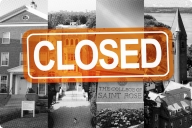You have /5 articles left.
Sign up for a free account or log in.

sesame/DigitalVision Vectors/Getty Images
One of the trickiest aspects of being a college president is knowing when to make statements on the thorny issues of the day and when to hold back. As a long-serving president, former law professor and sometimes self-proclaimed expert in public policy, I was often tempted in weigh in, by way of a presidential statement, on a range of public policy issues. But I then reminded myself that the fact that I want to say something doesn’t mean I should say something.
The business of issuing presidential statements is more fraught with hazards today than at any time in my nearly 40 years in higher education. Gone are the days when presidents of major universities, like Father Theodore Hesburgh of Notre Dame and Bill Friday of the University of North Carolina, helped shape public opinion on many of the issues of the day. While some bemoan that college and university presidents are no longer opinion leaders, those who do speak out are too often caught in the partisan crosshairs in our divided society.
Presidential statements are no longer primarily consumed by the institution’s internal community. They are parsed and sometimes twisted and ridiculed by those with an agenda quite different from our own. One need to look no further than the disastrous congressional testimony of the presidents of Harvard University, the Massachusetts Institute of Technology and the University of Pennsylvania to see that hostile audiences aren’t swayed by a scholarly analysis or legal parsing.
It is a sad fact that, given the general public’s loss of confidence in higher education, college and university leaders are not the respected voices they once were. In this divided society, even innocuous presidential statements can place the institution in a no-win situation. Too often those in the news media use presidential statements—often taking them out of context—to play into public perceptions that higher education institutions indoctrinate students into a liberal orthodoxy. Compounding the problem are calls from various groups for presidents to issue statements almost immediately, before the facts are clear and without sufficient time for reflection.
After Donald Trump was elected in 2016, I issued a statement that I thought would speak to the many students who were deeply troubled by the election. The statement, which I intended to be nonpartisan, affirmed the power of the liberal arts to find the truth and reaffirmed Augustana’s commitment to inclusion and justice. Many people, mostly alumni and friends of the college, took that statement to be anti-Trump. In response, the college’s board and I debated when presidential statements are appropriate and ultimately developed the following criteria.
- Is the topic or matter directly related to the institution’s mission, purpose and goals or to the health of higher education? Statements directly tied to institutional mission and values are easiest to defend. For example, after the murder of George Floyd, I issued a statement calling for justice, which is directly related to Augustana’s commitment to “acting against injustice and intolerance” as described in the college’s foundational documents. While the inevitable pushback came from a few people, most understood that as president I was advancing the college’s values, not simply my own agenda.
- Is there a more effective platform from which the president can make the statement, such as participating in a joint statement with other college presidents? When making presidential statements, there is some truth that there is safety in numbers. Joining with, or endorsing, a well-developed statement of one of the many higher education associations can add punch by ensuring that it is not simply the view of one president.
- Is the president the best person in the organization to make a statement? Often the best person in the institution to make that statement is the one closest to the situation or with the most expertise. For example, if there is a troubling racist incident propagated by a student, a student life professional might be best positioned to make the statement.
- Can the benefits of making a statement be accomplished in a more appropriate way? Often presidents are called upon to make statements because of the hurt that groups of students feel by actions taken by others in or outside the institution. Might it be more effective to meet with these groups of students to discuss the incident and hear from them in a way that might help shape the president’s perspective? Might it be more effective to address the issue in a town hall meeting or other public forum, making it harder for groups to take something out of context?
When possible, it is best to incorporate these general guidelines into a statement of principles that the institution’s senior leadership and governing body endorse. Having an approved statement of principles is a good shield against Monday-morning quarterbacks.
Although I urge restraint in presidential statements, the injury to students or the issue can sometimes be so important that a president cannot remain silent. A prime example was the murder of George Floyd. In cases like that, the most compelling statements are authentic—meaning they are true to the values and shared experiences of both the institution and the college leadership. Authentic statements have these attributes:
- They acknowledge the hurt and concern of the community, usually referencing conversations the president has had with community members.
- They link the president’s views to the college’s mission and values.
- When possible, they reference the president’s personal experience in the matter.
- Often, they reference thoughtful statements put out by higher education associations.
- They are timely but well vetted by other college leaders and the institution’s marketing staff.
- They are slept on overnight.
Regarding the last two points, I would often be a bit miffed with the comments of Augustana’s communications professionals, imploring them not to “prepackage and blow-dry” me. Let my personality shine through, I exhorted. But frequently, after sleeping on it, I would recognize that those professionals had a lot to add. The draft statement was what I wanted to say in the heat of the moment, not what I should say as a thoughtful yet passionate leader of the institution.








